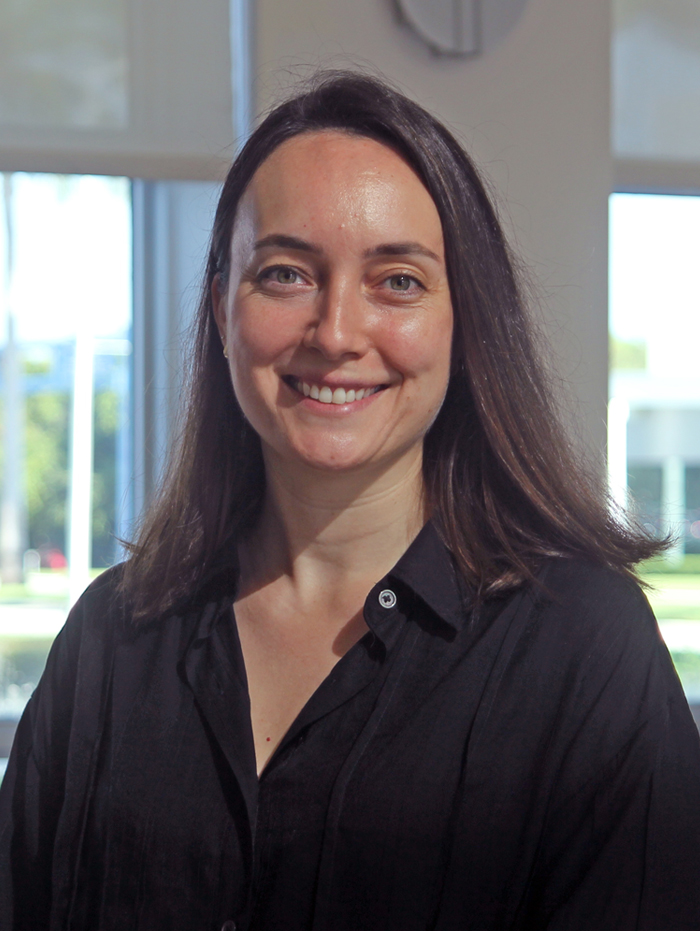Irem Korucu

Biography
Dr. Irem Korucu is an Assistant Professor in the Department of Psychology at Florida Atlantic University. She received her bachelor’s degrees in chemistry with a double major in psychology and a master’s degree in developmental psychology from Koç University, Istanbul, Turkey. She earned her doctorate degree in human development and family sciences from Purdue University. After completing her doctoral studies, Dr. Korucu pursued postdoctoral training at Yale University Child Study Center. Before joining FAU, she held faculty appointments at the Yale University Child Study Center and Oregon State University.
Education
Postdoctoral Fellow, Child Study Center, Yale University
Ph.D., Human Development and Family Sciences, Purdue University
M.A., Developmental Psychology, Koç University
B.A. & B.S., Psychology & Chemistry, Koç University
Research Interests
- The development of executive function and self-regulation in early childhood
- Influences of early social contexts on children’s development, learning, and well-being across the lifespan
- Cognitive development in the face of adversity
- Risk and protective factors during early experiences
- Early childhood prevention and intervention programs targeting executive function and self-regulation development
Research Description
My research examines the development of executive function and self-regulation skills in early childhood and how contextual factors, such as the quality of early social contexts, contribute to or hinder children’s development, learning, and well-being across the lifespan. To study this, I focus on three related strands of research: 1) the complex relations between executive function and children’s academic and social outcomes, 2) the processes linking early social contexts to executive function development, academic skills, and well-being over time, 3) prevention and intervention programs designed to promote early executive function development for children from traditionally underserved communities. I primarily use longitudinal and experimental methods and use both community-level data sets and large-scale nationally representative data sets to answer these research questions. My research program has important implications for young children’s executive function and self-regulation development and how to strengthen these skills before formal schooling.
Prospective Students
Dr. Korucu will be accepting a graduate student for the 2025-2026 academic year. Prospective students should contact Dr. Korucu to discuss available opportunities.
Selected Publications
Korucu, I., Paes, T. M., Costello, L.,* Duncan, R. J., Purpura, D. J., & Schmitt, S. A (2023). The role of peers’ executive function and classroom quality in preschoolers’ executive function and academic skills. Journal of Applied Developmental Psychology, 86, https://doi.org/10.1016/j.appdev.2023.101532
Duncan, R. J., Korucu, I., & Schmitt., S. A. (2023). Variations in early life home environment quality and children’s academic achievement. Journal of Applied Developmental Psychology, 85. https://doi.org/10.1016/j.appdev.2022.101500
Devlin, B. L., Paes, T. M., Geer, E. A., Bryant, L. M., Zehner, T. M., Korucu, I., Morse, K. E., Duncan, R. J., Purpura, D. J., Schmitt, S. A. (2023). Moving beyond dosage and adherence: A four-step protocol for capturing dimensions of young children’s engagement as a measure of implementation fidelity of social-emotional learning interventions. Frontiers in Psychology. https://doi.org/10.3389/fpsyg.2022.1014713
Korucu, I., Ayturk, E., Finders, J., Schnur, G.,* Bailey, C. S., Tominey, S., & Schmitt, S. A. (2022). Self-regulation in preschool: Examining its factor structure and associations with pre-academic skills and social-emotional competence. Frontiers in Developmental Psychology. https://doi.org/10.3389/fpsyg.2021.717317
Schmitt, S. A., Finders, J., Duncan, R. J., Korucu, I., Bryant, L., Purpura., D. J., & Elicker, J. (2021). Exploring longitudinal and bidirectional links between executive function and social-emotional competence in early childhood. Developmental Psychology, 57(12), 2093–2105. https://doi.org/10.1037/dev0001266
Britto, P. R., Hanoz-Penney, S., Pontuga, L. A., Sunar, D., Issa, G., Hein, S. D., Rosario, M. C., Almuneef, M. A., Korucu, I., Togo, Y., Kurbonov, J., Choibekow, N., Phan, H. T. T., Fallon, S., Artukoglu, B., Hartl, F., Salah, R., Fitzpatrick, S., Connolly, P., Dunne, L., Miller, S., Pruett, K., & Leckman, J. (2020). Pathways to a more peaceful and sustainable world: The transformative power of children in families. Development and Psychopathology, 1–12. https://doi.org/10.1017/S0954579420000681
Korucu, I., & Schmitt, S. A. (2020). The continuity and change in the home environment and associations with school readiness. Early Childhood Research Quarterly, 53, 97-107. https://doi.org/10.1016/j.ecresq.2020.03.002
Korucu, I., Litkowski, E., & Schmitt, S. A. (2020). Examining associations between the home literacy environment, executive function, and school readiness. Early Education and Development, 31, 455-473. https://doi.org/10.1080/10409289.2020.1716287
Korucu, I., Litkowski, E., Purpura, D. J., & Schmitt, S. A. (2020). Parental executive function as a predictor of parenting practices and children’s executive function. Infant and Child Development, 29, 1-16. https://doi.org/10.1002/icd.2152
Korucu, I., Rolan, E., Napoli, A. R., Purpura, D. J., & Schmitt, S. A. (2019). Development of the Home Executive Function Environment (HEFE) Scale: Assessing its relation to preschoolers’ executive function. Early Childhood Research Quarterly, 47, 9-19. https://doi.org/10.1016/j.ecresq.2018.09.001
Schmitt, S. A., Korucu, I., Napoli, A. R., Bryant, L., & Purpura, D. J. (2018). Using block play to enhance preschool children’s mathematics and executive function: A randomized controlled trial. Early Childhood Research Quarterly, 44, 181-191. https://doi.org/10.1016/j.ecresq.2018.04.006
Korucu, I., Yagmurlu, B., & Harma, M. (2017). Self-regulation: Relations with theory of mind and social behavior. Infant and Child Development, 26, 1-23. https://doi.org/10.1002/icd.1988